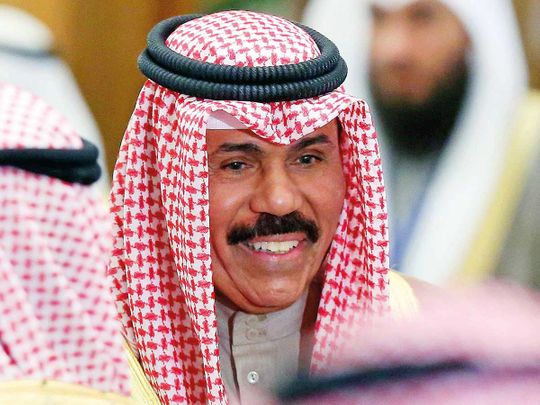
Kuwait City: Kuwait’s Emir, Sheikh Nawaf Al Ahmed Al Sabah, congratulated the US President-elect, Joe Biden, after news broke on Saturday of his victory.
The Emir also congratulated Vice-President-elect Kamala Harris, who is set to become the first woman, first black person and first person of Indian descent to be elected to the position.
In the cable, Sheikh Nawaf praised the historic and strong relationship between the US and Kuwait and said that he is looking forward to strengthening relations and joint cooperation in various aspects.
The crown prince, Sheikh Mishal Al Ahmed Al Sabah, and the Prime Minister, Sheikh Khaled Al Sabah, also congratulated the US President-elect and Vice-President-elect in two separate cables.
Historic relationship
The two countries share a long history, of cooperation, mutual benefit and friendship, that began well before Kuwait gained independence.
In 1911, by invitation from Sheikh Mubarak Al Sabah, the Reformed Church of America opened a medical centre in Kuwait, known to Kuwaitis as the American Hospital, or Al Americani.
Then around 20 years later, with the discovery of oil, Kuwait formed a joint venture with the American Gulf Oil company in 1933.
Ten years before Kuwait gained independence, the US government began fostering its relationship with Kuwait as it set up a US consulate. Then in 1961, the US government established diplomatic relations with Kuwait and upgraded the consulate to an Embassy.
Since the 1980s, much of the relationship has been one of security and stability, as both parties have benefited from one another. With around 13,000 US military personnel stationed across the country, the number of troops in Kuwait make up one-third of the total US forces deployed in the region, including Iraq and Afghanistan.
When Iran began attacking Gulf shipping tankers, mainly Kuwaiti vessels, in 1986, the US and the Soviet Union were invited by Kuwait to ensure the security of its tankers.
Then during the 1991 Iraqi invasion of Kuwait, the US spearheaded a coalition of 34 countries that launched an aerial campaign against the Iraqis.
Following 1991 liberation, the US increased its military presence in Kuwait, to ensure its interest in the region as well as curb a future Iraqi attack.
Currently there are around five known military bases and one joint base between Kuwait and the US. The bases are mainly used for training purposes, supporting regional operations and serve as a stop for all forces going into and out of Iraq. Camp Arifjan is situated approximately 37km from the Iraqi border, as it is used as a transit base for US personnel deploying to Iraq.








